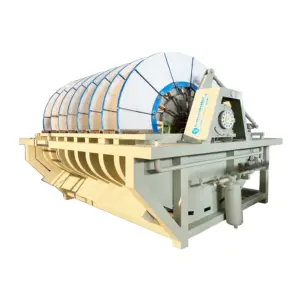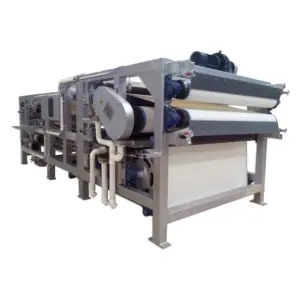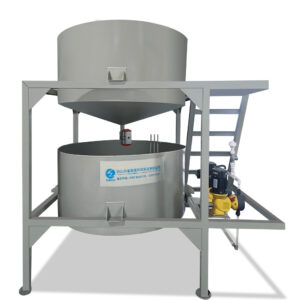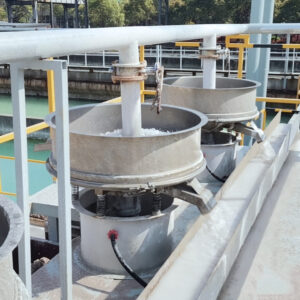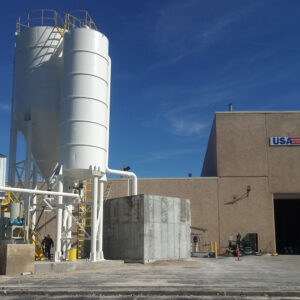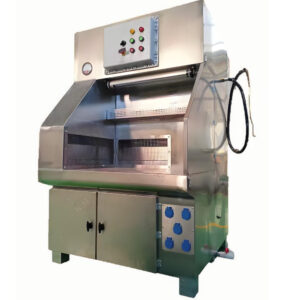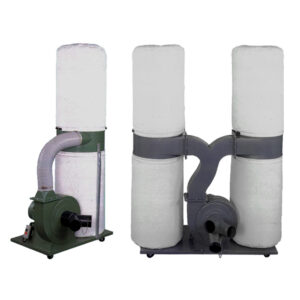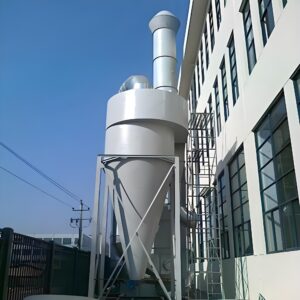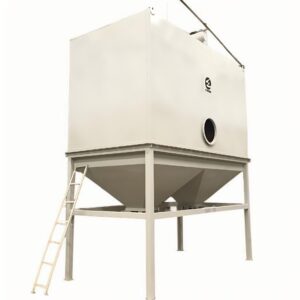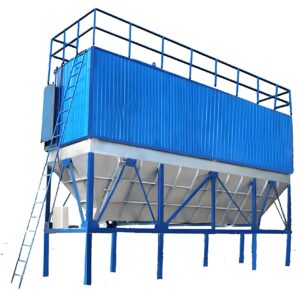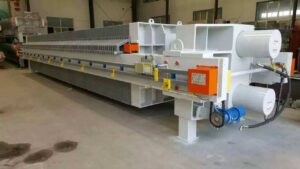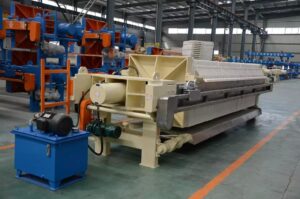The chemical industry is constantly evolving, seeking innovative solutions to improve efficiency, reduce costs, and meet stringent environmental regulations. One such solution that has gained significant traction in recent years is the membrane filter press. This advanced filtration technology has revolutionized solid-liquid separation processes across various chemical manufacturing applications.
Membrane filter presses offer numerous advantages over traditional filtration methods, including higher filtration efficiency, lower residual moisture content, and improved product quality. These benefits have made them indispensable in many chemical industry processes, from wastewater treatment to the production of high-purity chemicals.
As we delve deeper into the world of chemical industry membrane filter press applications, we'll explore the technology behind these innovative systems, their various uses, and the significant impact they've had on the industry as a whole. We'll examine how membrane filter presses are helping chemical manufacturers overcome challenges, optimize their processes, and stay competitive in an ever-changing market.
"Membrane filter presses have become a cornerstone technology in the chemical industry, offering unparalleled filtration efficiency and product quality improvements across a wide range of applications."
How do membrane filter presses work in chemical industry applications?
Membrane filter presses are sophisticated filtration systems designed to separate solids from liquids in various chemical industry processes. These presses utilize a series of filter plates, each equipped with a flexible membrane, to achieve highly efficient solid-liquid separation.
In chemical industry applications, membrane filter presses operate by pumping a slurry or suspension into the filter chambers. As pressure is applied, the liquid passes through the filter media while the solids are retained. The flexible membranes then inflate, exerting additional pressure on the filter cake to squeeze out remaining moisture.
The unique design of membrane filter presses allows for superior dewatering capabilities compared to traditional filter presses. This results in drier filter cakes, improved filtrate clarity, and shorter cycle times – all crucial factors in chemical manufacturing processes.
"The membrane filter press technology has revolutionized solid-liquid separation in the chemical industry, offering up to 30% higher dry solid content in filter cakes compared to conventional filter presses."
To better understand the effectiveness of membrane filter presses in chemical applications, consider the following data:
| Parameter | Conventional Filter Press | Membrane Filter Press |
|---|---|---|
| Dry Solid Content | 60-70% | 80-90% |
| Cycle Time | 90-120 minutes | 60-90 minutes |
| Filtrate Clarity | Good | Excellent |
| Cake Moisture | 30-40% | 10-20% |
As we can see, membrane filter presses offer significant improvements across key performance metrics, making them an invaluable tool in chemical industry filtration processes.
What are the key advantages of using membrane filter presses in chemical manufacturing?
The adoption of membrane filter presses in chemical manufacturing has brought about numerous benefits, revolutionizing filtration processes across the industry. These advanced systems offer a range of advantages that contribute to improved efficiency, product quality, and overall operational performance.
One of the primary benefits of membrane filter presses is their ability to achieve exceptionally low residual moisture content in filter cakes. This is particularly crucial in chemical manufacturing, where product purity and yield are of utmost importance. Additionally, these presses offer faster cycle times, reducing production bottlenecks and increasing overall throughput.
The versatility of membrane filter presses is another key advantage in chemical manufacturing. They can handle a wide range of slurries and suspensions, from highly viscous materials to fine particles, making them suitable for various chemical processes.
"Membrane filter presses have been shown to reduce operating costs by up to 25% in certain chemical manufacturing processes, while simultaneously improving product quality and yield."
To illustrate the advantages of membrane filter presses in chemical manufacturing, consider the following comparison:
| Feature | Conventional Filtration | Membrane Filter Press |
|---|---|---|
| Filtration Efficiency | Moderate | High |
| Cake Dryness | Good | Excellent |
| Process Flexibility | Limited | High |
| Automation Potential | Moderate | High |
| Chemical Resistance | Varies | Excellent |
These advantages have made PORVOO membrane filter presses an essential tool in modern chemical manufacturing facilities, enabling companies to meet the increasing demands for higher quality products and more efficient processes.
How do membrane filter presses contribute to environmental sustainability in the chemical industry?
In an era where environmental sustainability is paramount, membrane filter presses have emerged as a key technology in helping the chemical industry reduce its ecological footprint. These advanced filtration systems contribute significantly to sustainability efforts through various mechanisms.
Firstly, membrane filter presses excel at producing drier filter cakes, which translates to less waste volume. This reduction in waste not only minimizes disposal costs but also lessens the environmental impact associated with transporting and managing chemical waste products.
Moreover, the high efficiency of membrane filter presses in solid-liquid separation results in cleaner filtrates. This often means that the liquid fraction can be more easily recycled or safely discharged, reducing water consumption and minimizing the release of potentially harmful substances into the environment.
"Implementation of membrane filter presses in chemical manufacturing facilities has been shown to reduce wastewater volume by up to 40% and solid waste by up to 30%, significantly enhancing the industry's environmental performance."
To better understand the environmental benefits of membrane filter presses, consider the following data:
| Environmental Aspect | Traditional Filtration | Membrane Filter Press |
|---|---|---|
| Waste Volume | High | Low |
| Water Recycling Potential | Moderate | High |
| Energy Consumption | High | Moderate |
| Chemical Usage | High | Reduced |
| Emissions | Moderate | Low |
These environmental advantages make the Chemical industry membrane filter press an indispensable tool for chemical manufacturers striving to meet stringent environmental regulations and corporate sustainability goals.
What specific chemical processes benefit most from membrane filter press technology?
Membrane filter press technology has found wide-ranging applications across the chemical industry, proving particularly beneficial in certain processes where efficient solid-liquid separation is crucial. These presses have become indispensable in various chemical manufacturing operations, enhancing product quality and process efficiency.
One area where membrane filter presses excel is in the production of fine chemicals and pharmaceuticals. Here, the ability to achieve high levels of filtration efficiency and low residual moisture content is paramount. The technology is also extensively used in the treatment of industrial wastewater, where it helps in the recovery of valuable chemicals and ensures compliance with discharge regulations.
In the realm of polymer production, membrane filter presses play a vital role in separating reaction products and removing impurities. Their ability to handle high-viscosity materials makes them ideal for this application. Additionally, these presses have found significant use in the pigment and dye industry, where product purity is of utmost importance.
"Membrane filter presses have been shown to increase product yield by up to 15% in fine chemical production processes, while simultaneously reducing impurities by up to 40% compared to traditional filtration methods."
To illustrate the effectiveness of membrane filter presses in various chemical processes, consider the following data:
| Chemical Process | Filtration Efficiency | Product Purity Improvement |
|---|---|---|
| Fine Chemicals | 98% | 15-20% |
| Wastewater Treatment | 99% | N/A |
| Polymer Production | 95% | 10-15% |
| Pigment Manufacturing | 97% | 20-25% |
These figures demonstrate why membrane filter presses have become the go-to solution for many chemical manufacturers seeking to optimize their processes and improve product quality.
How does automation enhance the performance of membrane filter presses in chemical applications?
Automation has revolutionized the operation of membrane filter presses in chemical applications, significantly enhancing their performance, reliability, and efficiency. By integrating advanced control systems and sensors, automated membrane filter presses offer numerous advantages over manually operated systems.
One of the key benefits of automation is the ability to precisely control and optimize the filtration process. Automated systems can adjust parameters such as pressure, flow rate, and cycle time in real-time, ensuring optimal performance across various chemical applications. This level of control leads to more consistent results, improved product quality, and reduced operator intervention.
Furthermore, automation enables continuous monitoring of the filtration process, allowing for early detection of potential issues and predictive maintenance. This proactive approach minimizes downtime and extends the lifespan of the equipment, crucial factors in chemical manufacturing environments where productivity is paramount.
"Automated membrane filter presses have been shown to reduce cycle times by up to 30% and increase overall equipment effectiveness by 20% in chemical manufacturing applications, compared to manually operated systems."
To better understand the impact of automation on membrane filter press performance, consider the following data:
| Performance Metric | Manual Operation | Automated Operation |
|---|---|---|
| Cycle Time | 90 minutes | 60 minutes |
| Operator Intervention | High | Minimal |
| Process Consistency | Moderate | High |
| Data Collection | Limited | Comprehensive |
| Fault Detection | Delayed | Real-time |
These improvements demonstrate why automated membrane filter presses are increasingly becoming the preferred choice for chemical manufacturers seeking to optimize their filtration processes and maintain a competitive edge in the industry.
What maintenance considerations are crucial for membrane filter presses in chemical environments?
Maintaining membrane filter presses in chemical environments is crucial for ensuring their longevity, optimal performance, and safety. Given the harsh conditions and corrosive substances often encountered in chemical manufacturing, proper maintenance is not just about preserving equipment but also about maintaining product quality and operational efficiency.
Regular inspection and cleaning of filter plates, membranes, and seals are fundamental maintenance tasks. These components are exposed to various chemicals and can degrade over time, potentially leading to leaks or reduced filtration efficiency. It's essential to follow manufacturer-recommended cleaning procedures and use compatible cleaning agents to avoid damaging the equipment.
Another critical aspect of maintenance is monitoring and replacing filter media as needed. The type and frequency of replacement can vary depending on the specific chemical processes and materials being filtered. Regular assessment of filtrate quality can help determine when media replacement is necessary.
"Implementing a comprehensive maintenance program for membrane filter presses in chemical applications has been shown to extend equipment lifespan by up to 40% and reduce unplanned downtime by up to 60%, significantly improving overall operational efficiency."
To illustrate the impact of proper maintenance on membrane filter press performance, consider the following data:
| Maintenance Aspect | Impact on Performance | Frequency |
|---|---|---|
| Filter Plate Inspection | 15% efficiency increase | Monthly |
| Membrane Replacement | 25% capacity restoration | Every 6-12 months |
| Seal Inspection | 50% reduction in leaks | Quarterly |
| Control System Calibration | 10% improvement in accuracy | Bi-annually |
| Lubrication | 30% reduction in wear | As per manufacturer specs |
These figures underscore the importance of a well-structured maintenance program in maximizing the benefits of membrane filter presses in chemical industry applications.
How are membrane filter presses evolving to meet future challenges in the chemical industry?
As the chemical industry continues to evolve, membrane filter presses are adapting to meet new challenges and requirements. Manufacturers are investing in research and development to enhance the capabilities of these crucial filtration systems, ensuring they remain at the forefront of chemical processing technology.
One significant area of development is the integration of smart technologies and Internet of Things (IoT) capabilities. These advancements allow for real-time monitoring, predictive maintenance, and remote operation, enhancing efficiency and reducing downtime. Additionally, there's a growing focus on developing more robust materials for filter plates and membranes, capable of withstanding increasingly aggressive chemical environments.
Energy efficiency is another key area of innovation. Newer models of membrane filter presses are being designed with improved hydraulic systems and more efficient pumps, reducing overall energy consumption without compromising performance. This not only lowers operational costs but also aligns with the industry's sustainability goals.
"Next-generation membrane filter presses incorporating AI and machine learning algorithms have demonstrated the potential to reduce energy consumption by up to 25% and increase overall process efficiency by 15% in pilot chemical manufacturing applications."
To illustrate the evolution of membrane filter presses, consider the following comparison between current and future technologies:
| Feature | Current Technology | Future Technology |
|---|---|---|
| Control System | PLC-based | AI-driven |
| Material Resistance | Good | Excellent |
| Energy Efficiency | Moderate | High |
| Data Analytics | Basic | Advanced |
| Remote Operation | Limited | Comprehensive |
These advancements ensure that membrane filter presses will continue to play a crucial role in chemical industry filtration processes, meeting the ever-increasing demands for efficiency, sustainability, and product quality.
Conclusion
The adoption of membrane filter presses in the chemical industry has undoubtedly transformed filtration processes, offering significant improvements in efficiency, product quality, and environmental sustainability. As we've explored throughout this article, these advanced filtration systems provide numerous benefits, from achieving exceptionally low residual moisture content to enabling more efficient and flexible chemical manufacturing processes.
The key advantages of membrane filter presses, including their ability to handle a wide range of materials, their contribution to waste reduction, and their potential for automation, make them an invaluable tool in modern chemical manufacturing facilities. Their applications span various chemical processes, from fine chemical production to wastewater treatment, demonstrating their versatility and importance in the industry.
As the chemical industry continues to evolve, facing new challenges and stricter regulations, membrane filter presses are adapting to meet these demands. The integration of smart technologies, development of more robust materials, and focus on energy efficiency are ensuring that these filtration systems remain at the forefront of chemical processing technology.
In conclusion, membrane filter presses have become an indispensable technology in the chemical industry, driving improvements in product quality, operational efficiency, and environmental performance. As the technology continues to advance, it's clear that membrane filter presses will play an increasingly crucial role in shaping the future of chemical manufacturing processes.
External Resources
Membrane Filter Press – MSE Filterpressen® – This resource details the components, operation, and applications of membrane filter presses, particularly in the chemical, mining, and pharmaceutical industries. It highlights the achievement of low residual moisture and the modular design of these filter presses.
Membrane Filter Press – YO-TANA – This page describes the features and benefits of YO-TANA's membrane filter presses, including their application in various industries such as mining, pharmaceuticals, and chemicals. It emphasizes the versatility and efficiency of their high-pressure squeezing systems.
The Role of Filter Presses in the Chemical Industry – This article discusses the advantages of using membrane filter presses in the chemical industry, including high-pressure performance, automation, durability, and customization options. It also touches on their role in sludge dewatering and enhancing product quality.
Membrane Filter Press – Sachin Industries Ltd – This resource explains the operation and benefits of membrane filter presses, including their use in solid-liquid separation, reduced residual moisture content, and improved efficiency. It also mentions their applications in wastewater treatment, mining, and chemical manufacturing.
Application Chemicals – MSE Filterpressen® – This page focuses on the use of chamber and membrane filter presses in the chemical and petrochemical industry, highlighting their chemical resistance, process variability, and efficiency in achieving high-end product quality.
Membrane Filter Press for Chemical Industry – This resource provides information on the J-Press membrane filter press, designed for the chemical industry, emphasizing its ability to handle high solids content, reduce cycle times, and improve dewatering efficiency.
